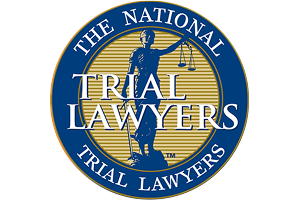- Free Consultation 24/7: (773) 908-9811 Tap Here To Call Us
The Consequences of Cocaine Possession in Chicago

Cocaine possession is a serious offense with severe consequences in Chicago, Illinois. The city takes a firm stance against drug-related crimes to protect public safety and combat the damaging effects of drug abuse. If you or someone you know is facing charges related to cocaine possession in Chicago, it’s crucial to understand the potential legal implications and seek appropriate legal guidance. Understanding Cocaine Possession Laws in Chicago In Chicago, cocaine possession is governed by both state and federal laws. Under Illinois state law, cocaine is classified as a Schedule II controlled substance. Possessing any amount of cocaine, regardless of quantity, is considered a felony offense. The severity of the offense depends on factors such as the amount of cocaine in possession, previous criminal record, and the intent to distribute. If you or someone you know is facing charges related to cocaine possession in Chicago, it is crucial to be aware of the potential legal implications and understand the gravity of the situation. The consequences of a cocaine possession conviction can profoundly impact various aspects of your life, including your personal freedom, reputation, and future opportunities.
Penalties for Cocaine Possession
The penalties for cocaine possession in Chicago are significant. A conviction for possessing any cocaine can result in imprisonment, hefty fines, probation, mandatory drug treatment programs, and a permanent criminal record. The specific penalties depend on the circumstances of the case and the amount of cocaine involved. For possession of a small amount of cocaine, classified as a Class 4 felony, individuals can face a prison sentence ranging from one to three years and fines up to $25,000. Possession of larger quantities may be charged as a Class 1 or Class X felony, leading to prison terms ranging from four to 30 years and fines reaching $500,000. Repeat offenders may face enhanced penalties and longer prison sentences. Additionally, federal drug laws can impose even harsher penalties for cocaine possession, especially if the offense involves larger quantities or crossing state lines.

Long-Term Consequences and Impact on Life
The consequences of a cocaine possession conviction extend beyond the immediate penalties. A criminal record can have long-lasting effects on various aspects of an individual’s life. It can limit employment opportunities, hinder educational pursuits, affect professional licenses, and make it challenging to secure housing or loans. Additionally, a conviction can strain personal relationships and damage one’s reputation. Having a drug-related offense on your record may also result in increased scrutiny from law enforcement and difficulties with future interactions with the legal system. The stigma associated with drug offenses can create barriers to rebuilding one’s life and have a significant emotional and psychological impact.
Seeking Legal Representation
If you or someone you know is facing cocaine possession charges in Chicago, it is crucial to seek immediate legal representation. An experienced criminal defense attorney specializing in drug offenses can provide invaluable guidance throughout the legal process. They can assess the details of your case, explore potential defenses, and advocate on your behalf. With their expertise, they can negotiate with prosecutors, secure reduced charges or alternative sentencing options, and protect your rights. Cocaine possession in Chicago carries severe consequences that can significantly impact an individual’s life. Understanding the laws surrounding cocaine possession and seeking legal representation is essential to protecting your rights and working towards the best possible outcome. With the guidance of a skilled attorney, you can navigate the legal process, explore defense strategies, and potentially mitigate the penalties you may face. Remember, a strong defense and a proactive approach are crucial when facing cocaine possession charges in Chicago.
About the Author: Andrew M. Weisberg is a former felony prosecutor who now serves as a defense attorney in the greater Chicago area. He has extensive experience handling all types of criminal cases, from sex offenses and domestic violence to retail theft-related crimes, murder, and drug crimes. His work has been recognized by Avvo, Expertise, National Trial Lawyers, and others, and he has been featured on countless news outlets for his experience and knowledge in criminal law.




















